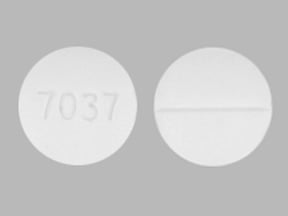
Methitest Coupons & Savings Card – Discount Prices from $6314.51
My prescription
Edit
10MG, Methitest (100 Tablets)
Select pharmacy

CVS
$6314.51
COUPON PRICE
Albertsons
$7056.63
COUPON PRICE
Walgreens
$7165.69
COUPON PRICE
Walmart
$7222.42
COUPON PRICEMethitest savings card
Show this card to your pharmacist
CVS
$6314.51
BIN
ID
PCN
GRP
019876
LH95865351
CHIPPO
LHX
Powered by
Related androgens prescriptions
More prescriptions for breast cancer
Related androgens prescriptions
More prescriptions for breast cancer
Price history for Methitest
100 Tablets, 10MG
Average retail price for Methitest
Average SaveHealth price for Methitest
Our price history data is based on aggregated prescription data collected from participating pharmacies in America. Our prescription data updates daily to reflect the latest price changes. If you notice a missing data point, it means there wasn't sufficient data available to generate a monetary value for that date.
*Retail prices are based on pharmacy claims data, and may not be accurate when we don't have enough claims.
Methitest dosage forms
Dosage Quantity Price from Per unit 10MG 100 Tablets $6314.51 $63.15
| Dosage | Quantity | Price from | Per unit |
|---|---|---|---|
| 10MG | 100 Tablets | $6314.51 | $63.15 |
What is methyltestosterone used for?
Methyltestosterone is used to treat conditions in males that result from a lack of natural testosterone, such as delayed puberty or hormonal imbalances. It is also used in certain cases to treat breast cancer in women and to manage symptoms of menopause.
What is the difference between testosterone and methyltestosterone?
Testosterone and methyltestosterone are both androgens, but they differ in their chemical structure and administration. Testosterone is the primary male sex hormone naturally produced in the body, while methyltestosterone is a synthetic derivative of testosterone. Methyltestosterone has a methyl group added to the 17-alpha position, which allows it to be taken orally and increases its resistance to liver metabolism. This modification makes methyltestosterone more suitable for oral administration compared to testosterone, which is typically administered via injection or transdermal methods.
Does estrogen methyltestosterone cause weight gain?
Estrogen methyltestosterone can potentially cause weight gain as a side effect. Hormonal changes and fluid retention associated with this medication may contribute to weight gain in some individuals. It is important for patients to discuss any concerns about side effects with their healthcare provider.
What are the benefits of taking methyltestosterone?
Methyltestosterone is used primarily to treat conditions related to low testosterone levels in men, such as hypogonadism. It can help improve symptoms like low energy, decreased libido, and mood changes. In certain cases, it is also used in women to treat breast cancer and to manage symptoms of menopause, such as hot flashes, when other treatments are not effective. It is important to use this medication under the guidance of a healthcare professional due to potential side effects and health risks.
What does estrogen methyltestosterone do?
Estrogen methyltestosterone is a combination medication used primarily in hormone replacement therapy. It helps alleviate symptoms associated with menopause, such as hot flashes and vaginal dryness, by supplementing estrogen levels. Additionally, the methyltestosterone component can help improve energy levels, mood, and sexual function. This combination is typically prescribed for women who have not found relief from estrogen alone.
